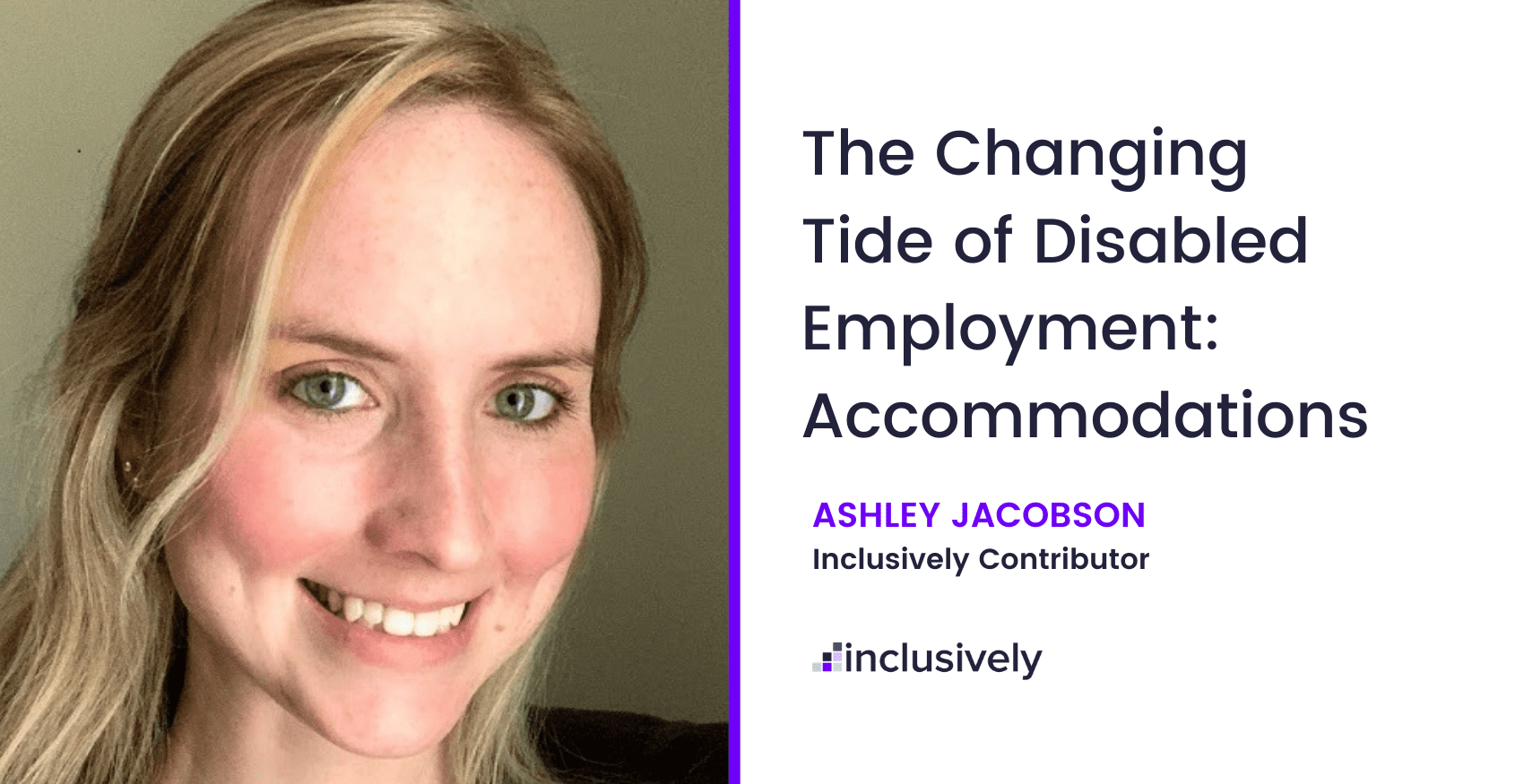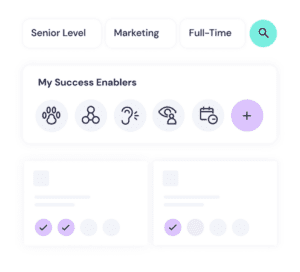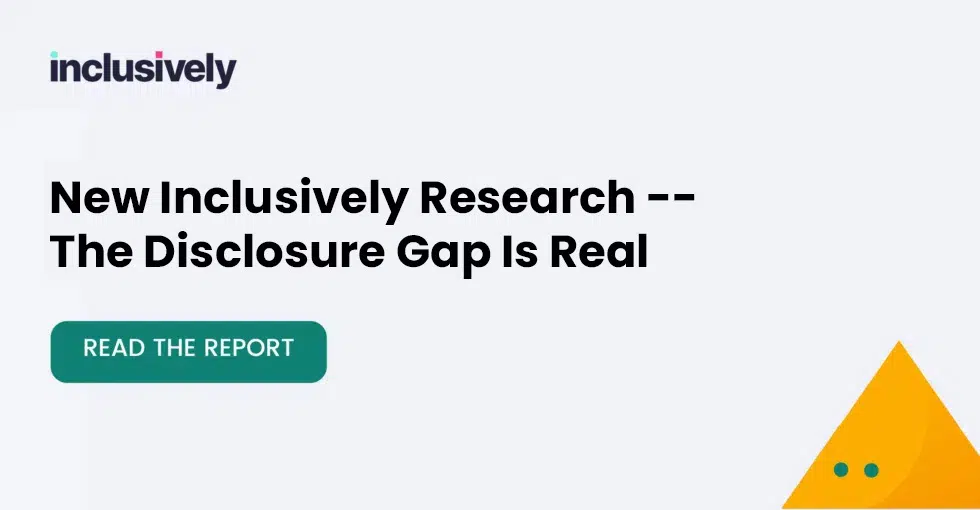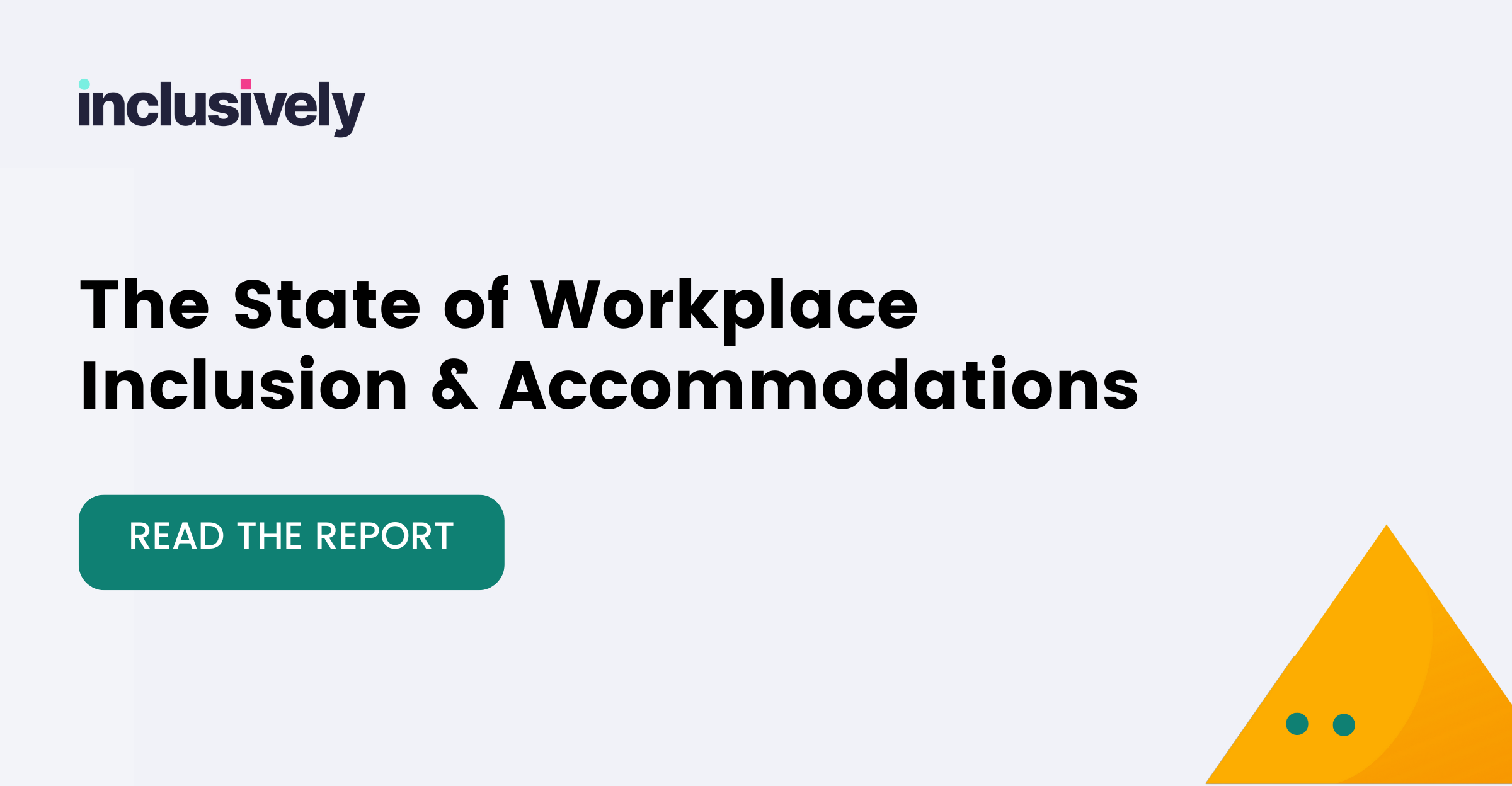What makes an accommodation reasonable? Ashley Jacobson, a disability rights attorney and accommodations specialist, shares her insight.
While disability is incredibly common, and perhaps the most shared human experience, it’s still often misunderstood in workplaces. Despite its diversity, culture, and talent, the disability community has remained the largest untapped employment pool—a pool of candidates that for the first time, finds itself immersed in opportunity as the economy rebounds from COVID-19. With these new opportunities, many are wondering the best way to navigate the bumpy waters of disability accommodations in a professional world forever changed by the pandemic.
Accommodations in the context of disability rights are equal-parts broad, specific, and individualized. Disability rights laws like the Americans with Disabilities Act (ADA) and many others, give the right to reasonable accommodations if you are classified as having a disability. For this reason, it’s important to know if you qualify as having a disability, what rights you have to accommodations, the barriers typically faced when requesting accommodations, and how you can address those barriers and maintain successful employment.
People who are categorized as having a disability—and disability rights—have a wide variety of disabilities that may or may not be readily apparent to a stranger on the street. It often includes individuals who are never told that their diagnosis qualifies as a disability by medical professionals, teachers, or family members. It includes people with chronic illness, mental illness, vision loss, hearing loss, neurodivergence, learning disabilities, limb difference, brain injury, and countless other conditions. The disability community without a doubt includes some of your family members, friends, classmates, or colleagues—and if you are the one out of every four adults in the U.S. who has a disability, it’s vital that you know your rights to best empower yourself on the path to success.
Unsure of whether this applies to you? Under the ADA, the law most commonly used to enforce disability rights in the workplace and elsewhere, you meet the definition of disability if you fall under at least one of three following criteria:
- You have been diagnosed with a physical or mental condition that significantly impairs one or more major life functions (things that you might do or need to do in everyday life—cooking, eating, sleeping, showering, getting dressed, physically moving around, etc.); or
- You have a record of being diagnosed with such a condition; or
- Other people regard you as having a disability (essentially, if you are treated like you have a disability by other people)
The definition of disability was made intentionally broad by lawmakers who acknowledged that the disabled experience is diverse and encompasses people with all types of symptoms and all levels of abilities. Once you know you fall under the definition of disability, the next step is to dive into what rights you have as a disabled individual—which for many, focuses on the right to reasonable accommodations in the workplace.
Accommodations are tools, strategies, policies, and procedures used to make environments that have been deemed inherently discriminatory and inaccessible, less biased and more accessible for people with disabilities. Accommodations are not “special treatment.” Disability rights laws were created because schools, workplaces, and other settings were proven to be discriminatory. Accommodations are a response to that proven fact. The law mandates that if you request them, reasonable accommodations must be provided in most workplaces.
So, what makes an accommodation reasonable? There are several factors that come into play here. Perhaps most importantly, the reasonableness of accommodations is assessed in the context of the essential functions of your job. A great place to start is by looking at the job posting, and asking throughout the hiring process or once hired if there are any other responsibilities for this role that weren’t included in the initial job posting. Picture yourself fulfilling those job duties, and imagine what accommodations might be useful. Some examples of accommodations include working near a restroom, being allowed to use noise-cancelling headphones when focusing on certain tasks, adapting the lighting in your workspace, using special writing utensils, or even working from home. There are endless possibilities when it comes to accommodations, and it’s okay to get creative.
Another factor considered when assessing the reasonableness of an accommodation is cost. This factor is usually the most important to the employer—although, employers are comforted when they learn that the vast majority of accommodations are no cost or low cost. Employers without proper experience or education assume the “return on investment” of providing accommodations for one person is not worth their time or money. This attitude can be combated by actually calculating the cost to the employer, and presenting the accommodations as affordable or worthwhile investments in a company that is entering a future that will require accessibility to be successful in business.
Other factors when determining the reasonableness of accommodations could include the ease of implementing them, the time involved, and the necessity for using these accommodations to complete the tasks required of the job. While the burden is usually on the employee with a disability to research and request accommodations, implementing them is not typically that difficult. Nonetheless, disabled employees and job candidates tend to face certain barriers when implementing accommodations.
One of the biggest barriers in the way of job candidates when it comes to asking for accommodations involves the complex emotions many feel about having a disability and needing accommodations in the first place. How our society conditions us to feel about and “overcome” our disabilities, is deeply ingrained in how we view our place in the workplace. People often feel bad asking for accommodations, because they don’t want to bring attention to their disabilities and open themselves up to stigmatizing comments and discrimination. Some have been forced to compensate in other ways, rather than bring awareness to their disabilities at work. Knowing how prevalent disability discrimination has traditionally been in hiring practices—in 2020 nearly 80% of people with disabilities were unemployed compared to 40% of the nondisabled—sometimes, disabled individuals want to just “keep their heads down” and find a way to do the job that doesn’t bring attention to their disabilities.
Another barrier is that people with disabilities historically have been pressured, or made to feel guilty when asking for accommodations. As a disability rights lawyer and accommodations specialist, too often clients of mine come to me and say, “I know I have these rights, but when I asked for accommodations, they not only shut me down, they made me feel like I was being unfair to my coworkers by asking for special treatment.” As stated above, accommodations are not special treatment. Accommodations remove unnecessary barriers that free up the employer to benefit from the employee’s true abilities.
Accommodations are also individualized, meaning they aren’t analyzed in the context of what is “fair” to your nondisabled coworkers. They are implemented on a case-by-case basis, to make the workplace less discriminatory for you as an employee with a disability. This means that two people with the same disability, could have different accommodations based on disability symptoms, jobs, and workplace barriers. It also means that implementing an accommodation for you, doesn’t set a precedent for your workplace to provide that same accommodation to other employees—disabled or nondisabled.
The good news is, a changing tide is bringing new opportunities for employment and workplaces that actually understand and appreciate disabled employees. With that appreciation comes an understanding that accommodations are smart, efficient, usually no-cost or low-cost measures that bring qualified individuals to the team. You can strategize to avoid or address the barriers discussed above by working with an employment network like Inclusively. Inclusively has established professional connections with major companies that are looking for disabled talent, and has vast experience in making sure that these companies understand disability and are willing to implement accommodations from the start. Inclusively also has a community portal which connects talent with these opportunities and can even help you create a professional resume.
You can also prepare to address these barriers by preparing for the accommodations request before you formally request accommodations. Research accommodation options with Inclusively, vocational rehabilitation counselors, or by using websites like AskJan.org. Explore not only which accommodations you will request, but how you will request them (I always recommend documenting the request and subsequent conversations over email or other printed text forms of communication so it can be preserved for your records). Investigate the best timing for you to request the accommodations, and who you should have this conversation with at work.
One of the many benefits of working with a professional employment network like Inclusively, is that you can feel confident that the employer knows what accommodations are and is open to hiring and enforcing accommodations from the very beginning. Another amazing thing about Inclusively is that you are never pressured to disclose your disability before you’re ready (if you decide to ever disclose). Inclusively provides an incredible platform to investigate your employment options, including many work-from-home possibilities, if you’re a disabled professional.
To connect and continue this conversation, join me on the new Inclusively Community Portal, created for their network of job seekers, employers, and partners to discuss disability employment topics, share ideas, and engage.
Overview of a candidate’s job search indicators, including Senior Level, Marketing, Full-Time, My Success Enablers with a row of icons
How Inclusively Works
Inclusively’s accessible employment platform and job matching technology goes beyond traditional search criteria and allows candidates to connect with opportunities that match their experience, skills, and workplace accommodations – called Success Enablers. Some examples include screen readers, noise-canceling headphones, an emotional support animal, accessible parking and entrances, braille signage, and dozens more.




